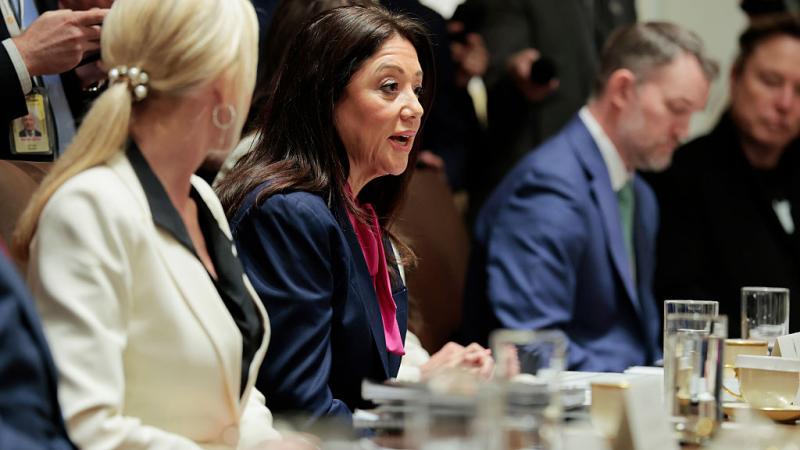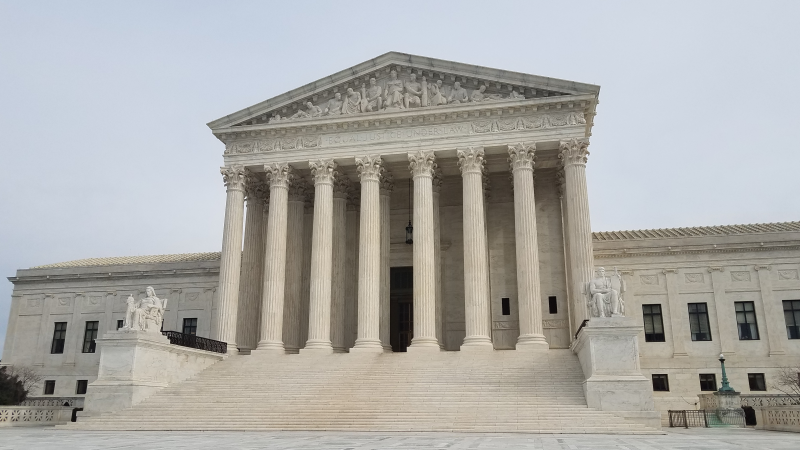Deaths represent 1.3% of side effects reported for COVID vaccines: peer-reviewed CDC study
Vaccine experts are skeptical of agency's reliance on Vaccine Adverse Events Reporting System, however. Study's time period excludes nearly all minors.
Deaths following mRNA vaccination against COVID-19 represented 13 out of every 1,000 reports (1.3%) to the federal government's Vaccine Adverse Events Reporting System (VAERS), the CDC's Atlanta-based researchers said last week.
Another 66 reports out of every 1,000 (6.6%) were categorized as "serious," resulting in "inpatient hospitalisation, prolongation of hospitalisation, permanent disability, life-threatening illness, congenital anomaly or birth defect," according to their study published in The Lancet, the U.K-based medical journal.
VAERS is often dubbed a passive surveillance system because it accepts reports from anyone. The CDC previously told Just the News that most reports come from manufacturers or healthcare providers, who have mandatory reporting requirements.
But the researchers said they also consulted an "active" smartphone-based voluntary monitoring system, v-safe, created in 2020. The data show that "most reported adverse events were mild and short in duration," with 18-49 year-olds representing a plurality (45%) and females a supermajority (75%).
Mainstream media uncritically ran with the CDC's framing, with USA Today touting researcher David Shay's assurance that the death rate was expected given the elderly population studied. About a quarter of reports were from ages 65 and up.
A large subset of young people was almost entirely excluded, however: minors.
The study only reviewed the first six months of emergency use authorization (EUA) for the Pfizer and Moderna vaccines, covering 340,000 reports and 299 million doses.
That time period ends just a month after Pfizer's vaccine was authorized for 12-15 year-olds and predates its EUA for children 5-11, while Moderna's vaccine remains unauthorized for anyone under 18. The study's youngest age range is 16-17, representing 2% of all reports.
"Why the cut-off at six months? There are now data that extend for 14 months, and those data include children," Robert Malone, the mRNA vaccine pioneer-turned-critic, wrote in his newsletter.
Health authorities worldwide have recognized young people, particularly males, as having a higher risk for heart inflammation following mRNA vaccination, especially after the second dose. That was the FDA's rationale to indefinitely pause consideration of Moderna's vaccine for adolescents.
Malone also faulted the CDC researchers' prior literature search of the National Institutes of Health's PubMed database. Their search methodology was so complicated that it returned few papers describing post-vaccination health impacts, in contrast to Malone's much longer list of relevant papers through January.
Mainstream vaccine scientists who have questioned the feds' COVID vaccine strategy, particularly boosters-for-all and refusal to recognize natural immunity, had a different critique of the study than Malone.
"From the report of these VAERS data, one can neither conclude that the vaccine is safe or that it is not safe," epidemiologist Martin Kulldorff, formerly of Harvard Medical School, told Just the News.
"From the v-safe survey, we can conclude that mild adverse reactions are very common, and more common than for most vaccines, but we already knew that from the randomized clinical trials," the Great Barrington Declaration coauthor wrote in an email. "We cannot conclude much about serious adverse events."
He gave the hypothetical example of three vaccines that each have 1,000 reported deaths. The first and second each have a million administered doses, but because the second has far fewer mild adverse events, it actually has a higher percentage of deaths among adverse events. The third, with only 10,000 administered doses, is actually the most dangerous but has the same percentage of deaths among adverse events as the second.
The CDC kicked Kulldorff off a vaccine safety panel last year for publicly questioning its recommendation for an across-the-board pause in distribution of the Johnson & Johnson vaccine based on blood-clot reports in prime-age women. It adopted his view days later.
"I think you can really make nothing of VAERS data," Paul Offit, director of the Vaccine Education Center at Children's Hospital of Philadelphia and member of the FDA's Vaccines and Related Biological Products Advisory Committee, told Just the News in a phone call.
He doesn't understand why the CDC "bend[s] over backwards to validate" what he calls a "noisy system" that would be better described as a "hypothesis-generation mechanism." While VAERS picked up intestinal blockage reports from a rotavirus vaccine and myocarditis reports from mRNA vaccines, it was the public-private Vaccine Safety Datalink that confirmed both, Offit said.
While he couldn't explain the narrow time period studied, Offit said he doubts "the CDC is trying to lie to you." He raised eyebrows in recent months by arguing against third mRNA doses for young people, including his son, and casually discussing his participation in a federal meeting on whether to recognize natural immunity in pending vaccine mandates.
A Columbia University researcher who estimates COVID vaccine-related deaths are "underreported by a factor of 20" told Just the News he wasn't surprised by the high incidence of serious events, including death, among the adverse events reported through VAERS.
"I would expect severe events would be more likely to be reported to VAERS," clinical neurobiologist Spiro Pantazatos wrote in an email, while cautioning that COVID vaccines should be compared to "the distribution of event types for other vaccines."
What surprised him in The Lancet study: The CDC researchers didn't use "rigorous and quantitative cost-benefit analysis" to reach their conclusion that the "benefits of immunization favor vaccination."
Neither the CDC nor the study's corresponding author, Julianne Gee, responded to Just the News queries about the study's characterization of adverse events or limitation to the first six months of the vaccines' EUA.
The Facts Inside Our Reporter's Notebook
Links
- The Lancet
- CDC previously told Just the News
- USA Today
- unauthorized for anyone under 18
- newsletter
- indefinitely pause consideration of Moderna's vaccine
- Malone's much longer list of relevant papers
- It adopted his view days later
- Vaccine Safety Datalink
- He raised eyebrows in recent months
- underreported by a factor of 20
















